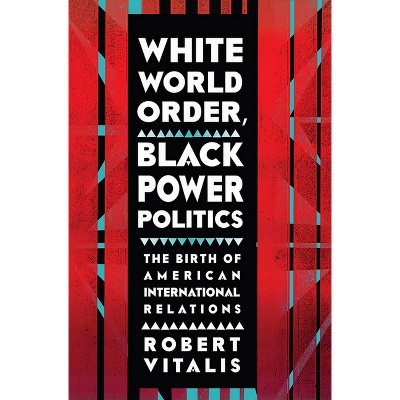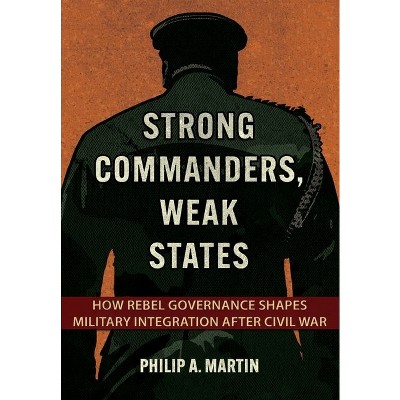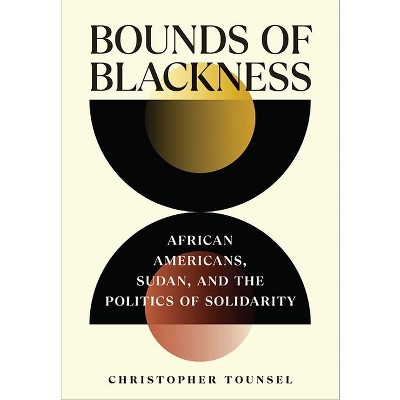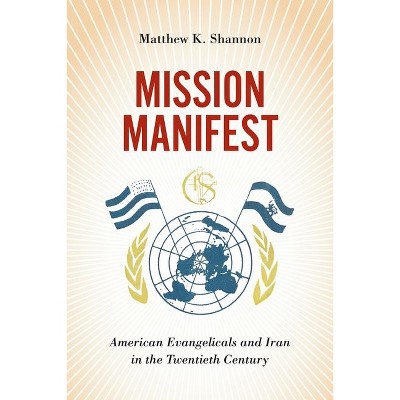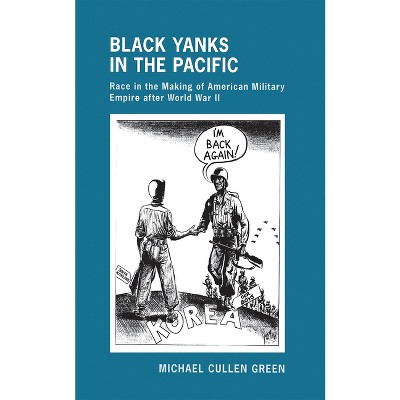Arc of Containment - (United States in the World) by Wen-Qing Ngoei (Paperback)

About this item
Highlights
- Arc of Containment recasts the history of American empire in Southeast and East Asia from World War II through the end of American intervention in Vietnam.
- About the Author: Wen-Qing Ngoei is Associate Professor of History at the Singapore Management University.
- 270 Pages
- Political Science, International Relations
- Series Name: United States in the World
Description
About the Book
Arc of Containment recasts the history of American empire in Southeast and East Asia from World War II through the end of American intervention in Vietnam. Setting aside the classic story of anxiety about falling dominoes, Wen-Qing Ngoei articulates a new regional history premised on strong security and sure containment guaranteed by...Book Synopsis
Arc of Containment recasts the history of American empire in Southeast and East Asia from World War II through the end of American intervention in Vietnam. Setting aside the classic story of anxiety about falling dominoes, Wen-Qing Ngoei articulates a new regional history premised on strong security and sure containment guaranteed by Anglo-American cooperation.
Ngoei argues that anticommunist nationalism in Southeast Asia intersected with preexisting local antipathy toward China and the Chinese diaspora to usher the region from European-dominated colonialism to US hegemony. Central to this revisionary strategic assessment is the place of British power and the effects of direct neocolonial military might and less overt cultural influences based on decades of colonial rule, as well as the considerable influence of Southeast Asian actors upon Anglo-American imperial strategy throughout the post-war period.
Arc of Containment demonstrates that American failure in Vietnam had less long-term consequences than widely believed because British pro-West nationalism had been firmly entrenched twenty-plus years earlier. In effect, Ngoei argues, the Cold War in Southeast Asia was but one violent chapter in the continuous history of western imperialism in the region in the twentieth century.
Review Quotes
Arc of Containment, which is based upon adroit trawling in the archives of the principal nations at issue--Great Britain, the United States, Singapore, and Malaysia--is certainly one of the more intriguing explorations of Washington's excruciating encounter in Southeast Asia; and, like many good books, it sheds light relentlessly on matters not necessarily addressed frontally: most pointedly, Washington's conflict then entente with China.
-- "Diplomatic History"By bringing the agency and influence of Southeast Asian actors into his analysis, Ngoei's book offers more regional insight to interested readers seeking knowledge about American influence in Southeast Asia. The book itself represents a noteworthy intersection of historical, comparative, and security scholarship and would be of equal interest to historians, political scientists, and regional scholars alike.
-- "PACIFIC AFFAIRS"In this well-argued and convincing book, Wen-Qing Ngoei... delivers a perceptive and comprehensive... overview of the diplomatic and strategic evolution of Southeast Asia in the 1950s and 1960s. Arc of Containment situates the Vietnam War in a regional context, and students of history, diplomacy, politics, and security should find it interesting and illuminating.
-- "The Journal of Asian Studies"Ngoei issues a sad warning about the costs for the peoples of the area subjected to the new and re-emergent Asian cold war challenges. This is an important scholarly contribution.
-- "Choice"This relatively slim volume illuminates as it enlightens [a] vivid testament to its immense value.
--Diplomatic HistoryWen-Qing Ngoei's Arc of Containment: Britain, the United States, and Anticommunism in Southeast Asia is a thought-provoking, compelling, and significant contribution to the study of American hegemony and intervention in postwar Southeast Asia.
-- "Southeast Asian Studies"About the Author
Wen-Qing Ngoei is Associate Professor of History at the Singapore Management University. His work has been published in Diplomatic History and the Journal of American-East Asian Relations.
Shipping details
Return details
Trending Non-Fiction






